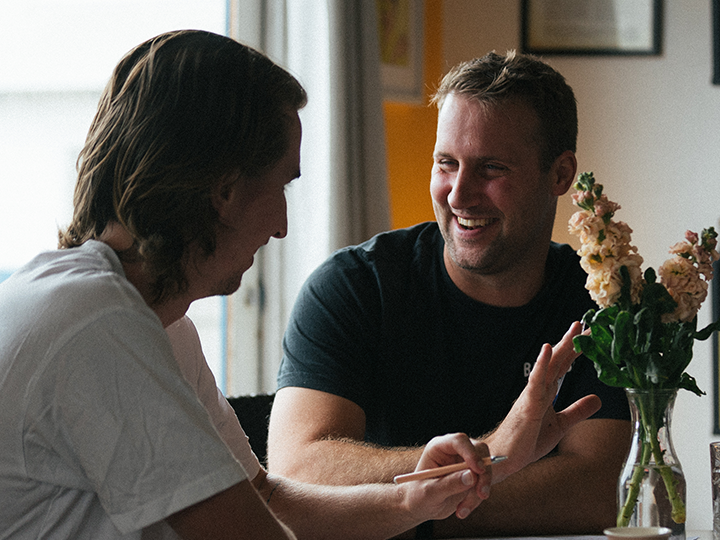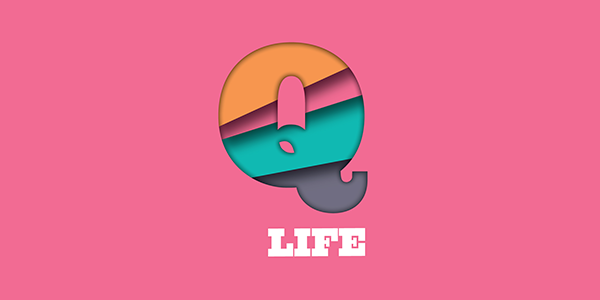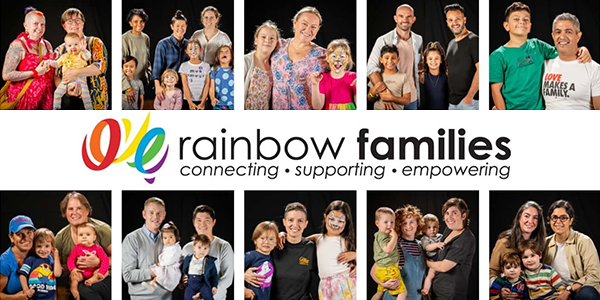LGBTIQ+ mental health
At Beyond Blue, we celebrate the strength, resilience, and diversity of our Lesbian, Gay, Bi, Trans, Intersex and Queer (LGBTIQ+) communities.
Recognising the unique mental health challenges faced by LGBTIQ+ individuals, we provide comprehensive resources and support to foster well-being and inclusivity.


On this page
"Sexuality is highly personal. Whether we feel like we connect with a certain label, or drift between labels is something that we can only determine ourselves." - Beyond Blue Forums member
Connecting with people who understand what you’re going through can provide a sense of belonging and support - but those people aren’t always easy to find!
The Beyond Blue Forums are a great way to connection and support from people in a similar situation to you. Wherever you are, whatever you're going through - know that you're not alone. There's a caring and supportive community here for you.


Stories from the LGBTIQ+ community
Sharing personal stories fosters connection, support, and understanding within the LGBTIQ+ community.
Here, individuals share their journeys, highlighting both the challenges and triumphs they have faced.
Look after your mental health and wellbeing
Prioritising your mental health can help you navigate the unique challenges, enabling you to celebrate your identity with resilience and confidence.
By investing in self-care and seeking support when needed, you can create a foundation for personal growth, stronger connections with others, and a more vibrant, fulfilling life.
Here are some things you can do to protect your mental health:
Connect with affirming networks — Build strong connections with other LGBTIQ+ individuals can provide a sense of belonging and support. Visit the Beyond Blue Forums to connect with our LGBTIQ+ community.
Find a mental health professional — speaking to health professionals who are knowledgeable and understanding of LGBTIQ+ issues can help you navigate the challenges you may face.
Visit the QLife directory for LGBTIQ+ support and resources specific to your state.
Advocacy and activism — Engaging in advocacy and activism can empower you while helping to create positive change.
Self-care — Prioritise self-care activities such as exercise, mindfulness, and hobbies.
Education — Learn about LGBTIQ+ history, culture, and issues to help you feel more empowered and connected to your community.
Know your rights
Even though there is an increasing acceptance of LGBTIQ+ people in society and greater visibility in the media and public life, we acknowledge that discrimination and harassment is still widely experienced among individuals.
We know that:
Almost half of all LGBTIQ+ people (43.9%) experience high levels of psychological distress
Nearly three in five (58.7%) had a 12-month mental health condition
Almost half of all LGBTIQ+ people (46.8%) saw a health professional for their mental health in the last 12 months
Almost half of all LGBTIQ+ people (47.8%) had seriously thought about taking their own life at some point in their lifetime
In Australia, the Sex Discrimination Act 1984 makes it unlawful to discriminate based on a person’s sexual orientation, gender identity and intersex status.
Discrimination can take the form of:
obvious acts of prejudice and discrimination (e.g. someone who is open about being transgender being refused employment or promotion)
more subtle, but no less harmful, discrimination that reinforces negative stereotypes and feelings of difference (e.g. use of the word 'gay' as a derogatory term).
These unique challenges can impact your wellbeing and increase your likelihood of developing a mental health condition, which is why it’s important to know your rights.
LGBTIQ+
Throughout this website lesbian, gay, bisexual, transgender, intersex and queer (LGBTIQ+) and bodily, gender, and sexuality diverse people and communities are referred to with the acronym LGBTIQ+. We recognise that there are distinct differences across the individual identities and bodily states in these communities and a wide range of diversity.
Trans
Trans is being used here as an umbrella term to cover a diverse range of experiences of sex and gender and ways of describing oneself such as trans, transgender, transsexual, genderqueer, gender questioning etc.







